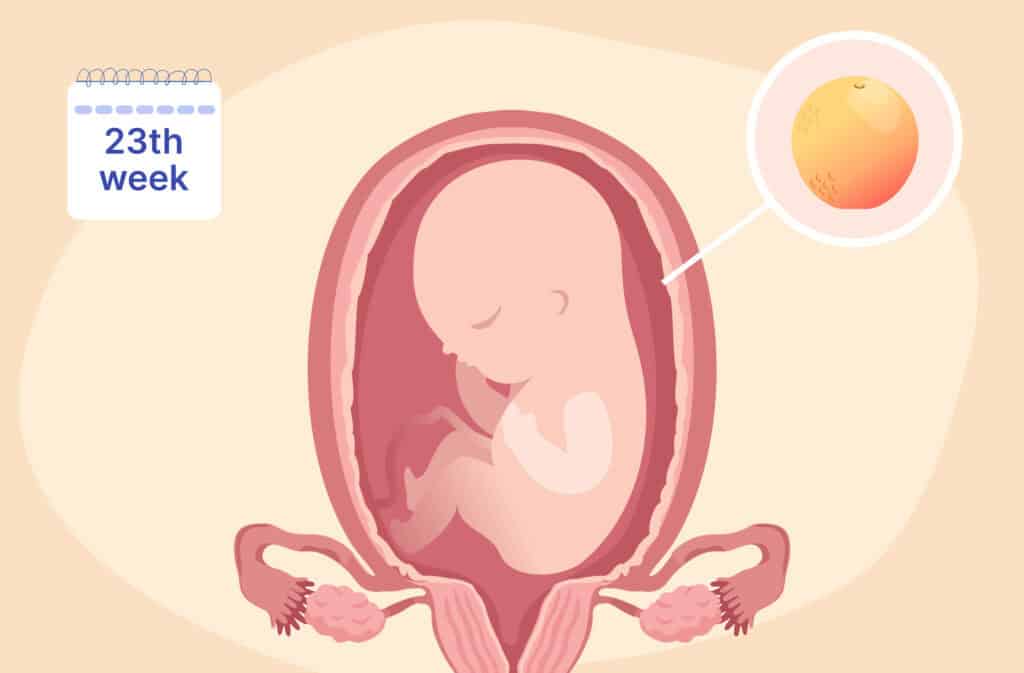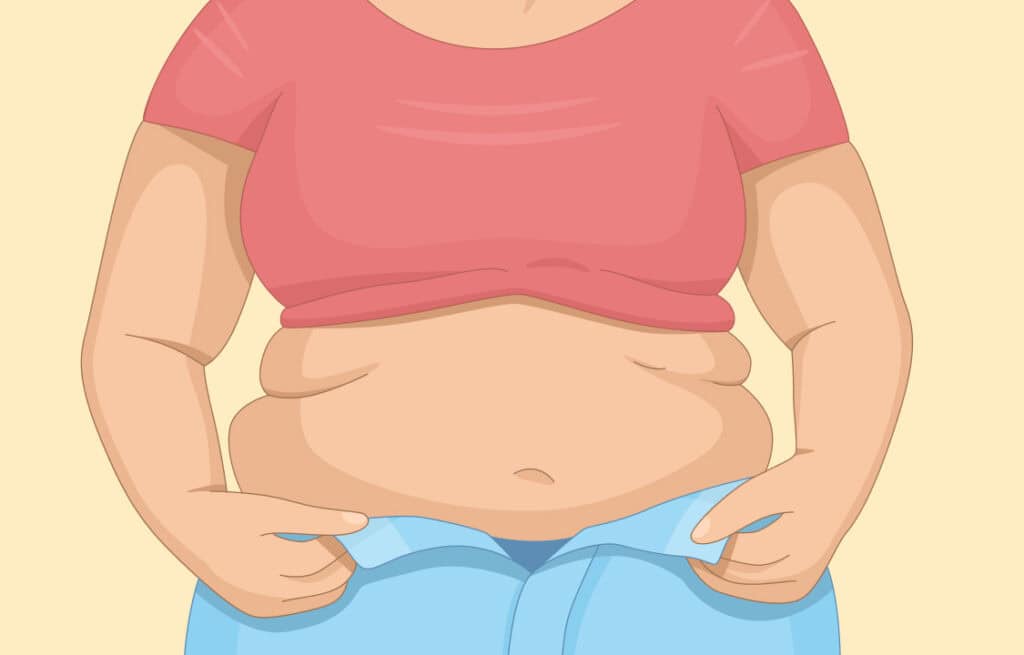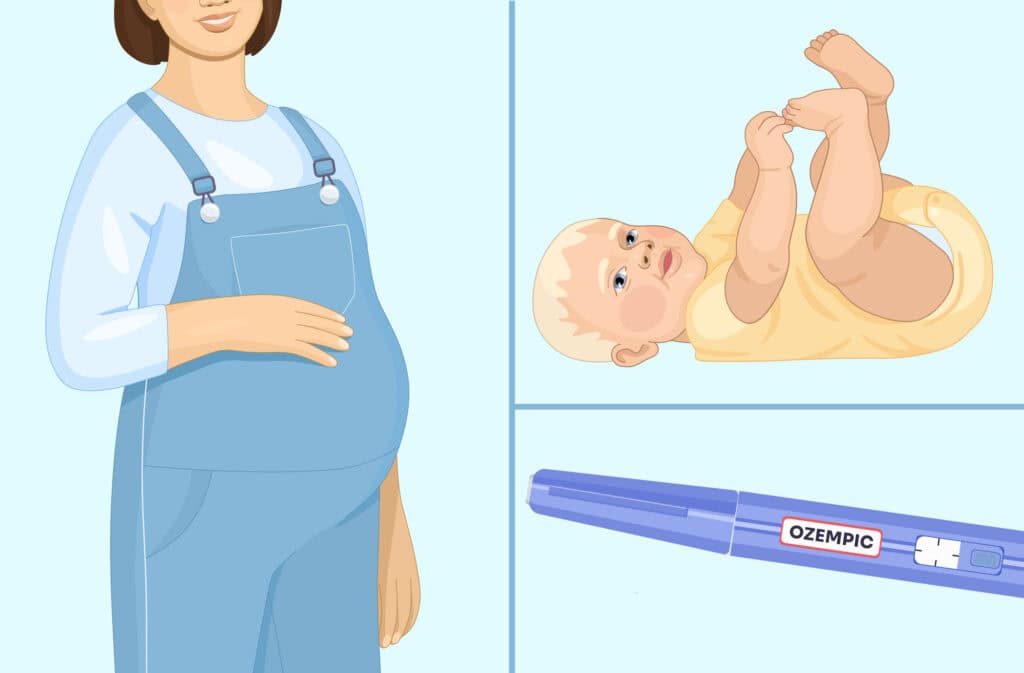Femia > Health Library > Pregnancy > Pregnancy week by week > What to expect at 23 weeks pregnant: Baby size & movements
What to expect at 23 weeks pregnant: Baby size & movements

- Updated Feb 20, 2025
- Published
CRAFTED BY HUMAN
Crafted by human At Femia, we provide accurate and up-to-date information at every stage of your journey, from trying to conceive, pregnancy and postnatal support. All content is created by a real person based on in-depth research and own professional experience. Femia ensures that you will receive expert advice, strict accuracy and a personalized approach from our authors/medical experts. Learn more about our editorial policy.
FACT CHECKED
Fact checked At Femia Health, we maintain the highest standards of editorial excellence in delivering content focused on helping you conceive, guiding you through pregnancy, and supporting you postpartum. Explore our content review principles to learn how we ensure the accuracy and quality of our health and lifestyle tips for every stage of your journey.
At 23 weeks pregnant, your fetus is growing stronger. Now roughly the size of a grapefruit, your baby is developing key features like lung maturity and active movements. You may experience a rounder belly, increased appetite, and mild back pain as your body continues to adapt.
At 23 weeks pregnant, you’re moving closer to the third trimester, and your baby is growing rapidly. You may notice an increase in kicks and rolls as the baby strengthens their muscles. For many women, week 23 is marked by a more pronounced bump, along with symptoms like backaches or swelling. Let’s dive into what’s happening in week 23, including baby development, symptom management, and helpful health tips.
Track your symptoms with Femia and get tailored
health advice right on your phone
Pregnant symptoms at 23 weeks
As your baby grows, you may experience new or changing symptoms. Common symptoms at 23 weeks include:
Linea nigra
The linea nigra is a dark vertical line that often appears on your belly during pregnancy, typically in the second trimester. It’s caused by higher hormone levels that stimulate melanin production, darkening the skin. While common for most women, it’s most noticeable in those with darker skin and hair. The line usually fades after delivery, but it might not disappear completely for some women.
Breast changes
As you move further into pregnancy, your breasts may feel larger and more sensitive. You may notice prominent veins and a darkening of the areolas. Additionally, some women experience colostrum leakage—this early, nutrient-rich milk helps nourish your baby after birth. If you notice drops of this yellowish liquid, it’s completely normal; however, it’s also fine if you don’t experience it.
Pregnancy cravings
With your appetite often increasing, you may experience cravings for specific foods. Many pregnant women crave sweets (49%), salty snacks (42%), spicy foods (38%), or sour foods (21%). While it’s fine to indulge your cravings occasionally, it’s important to maintain a balanced diet rich in fruits, vegetables, whole grains, and protein to meet both your and your baby’s nutritional needs.
Vision changes
Pregnancy-related changes in hormones, fluid retention, and circulation can lead to mild vision changes, such as blurry or nearsighted vision. Though these changes are usually temporary, severe changes like double vision, vision loss, or seeing flashing lights could signal serious health conditions, such as preeclampsia. Contact your healthcare provider if you experience any concerning vision issues.
Forgetfulness
Many expecting moms report experiencing “pregnancy brain,” where forgetfulness and difficulty focusing are common. This can be attributed to hormonal changes, stress, and sleep disruptions. While it may cause some brain fog, it’s generally minor and temporary. Don’t worry—it doesn’t mean you’re any less capable or smart; it’s just part of the experience for many during pregnancy.
👉Find out more: 22 Weeks pregnant: Fetal development, body changes, and key insights
Your body at 23 weeks pregnant
At 23 weeks, your uterus is expanding to accommodate your growing baby, and your belly is becoming more noticeable. As your body adjusts to this change, you may experience increased pressure in your lower abdomen and pelvis, along with possible discomfort from your stretching skin. This can lead to occasional itching or the appearance of stretch marks, which are common during this stage of pregnancy. Keeping your skin moisturized can help alleviate some of this discomfort.
You may also notice that your energy levels fluctuate. While some women experience a resurgence of energy in the second trimester, others may begin to feel fatigued as their bodies continue to work hard to support their baby’s growth. Along with this, you might start feeling more breathless as your uterus pushes upward, putting pressure on your diaphragm. Taking breaks and focusing on deep breathing can help manage shortness of breath as you progress through the pregnancy.
23-week pregnant belly
Your belly at 23 weeks is likely more defined, and you may feel a stronger connection with your baby as their movements become more frequent. While the size of your bump can vary based on factors like body type and muscle tone, a growing belly is a sign that your baby is developing healthily.
Baby development at 23 weeks of pregnancy
At 23 weeks, your baby is continuing to grow rapidly, developing important sensory and physical skills that will help them after birth. Their skin is still thin and translucent, but it is beginning to thicken as they gain more fat. By now, your baby can hear sounds from the outside world, including your voice. They may even respond to loud noises or music, making this a special time to bond with your baby by talking or singing to them.
- Hearing you. Your baby’s hearing is becoming more developed. They can now hear your voice and other sounds from outside the womb, as well as your heartbeat and the sounds of your digestive system. It’s believed that babies may recognize their mother’s voice after birth, so this is a great time to start bonding through gentle conversation and music.
- Your baby’s digestive system. Your baby’s digestive system is maturing, and their intestines are starting to practice the movement they will use to digest food after birth. They are swallowing amniotic fluid, which helps in the development of the gut and helps them practice the swallowing reflex.
- Baby movement. At this stage, your baby is moving more actively. You may start feeling more pronounced kicks, rolls, and stretches as your baby’s muscles and bones continue to grow stronger. Their movements may feel more rhythmic and less jerky, and while the space in your womb is starting to feel more cramped, you will still feel plenty of activity as they shift around. These movements are a sign of your baby’s growing strength and coordination.
23-week baby size
The 23-week-old baby size is about 11.5 inches long and weighs around 1 pound, similar to the size of a grapefruit. This growth spurt supports the baby’s increasing strength and coordination.
23-week ultrasound
A 23-week ultrasound may provide a detailed look at your baby’s development, including their organs, spine, and limbs. If you’ve had a recent anatomy scan, this ultrasound might be a follow-up to check growth and position. You may also notice your baby moving during the scan, which is an exciting way to connect with them.
Track your symptoms with Femia and get tailored
health advice right on your phone
Tests to expect at 23 weeks pregnant
At 23 weeks pregnant, your healthcare provider may conduct a few tests and screenings to track both your health and your baby’s development:
- Blood pressure monitoring: Regular checks to monitor for high blood pressure, which could signal potential complications such as preeclampsia.
- Fetal heartbeat: Your doctor may listen to your baby’s heartbeat to ensure healthy development. You may also be asked about fetal movements to ensure the baby is active.
- Urine test: A urine sample is typically tested to check for signs of protein or sugar, which could indicate conditions like preeclampsia or gestational diabetes.
- Blood tests: Depending on your health history, your provider might conduct tests to check for anemia or screen for infections, including HIV or syphilis.
- Ultrasound (if needed): If not done earlier, an ultrasound may be performed to check the baby’s growth and development, as well as the position of the placenta and amniotic fluid levels.
These routine tests at 23 weeks help ensure that both you and your baby are on track for a healthy pregnancy. Be sure to talk to your provider if you have any questions or concerns.
👉Find out more:
24 Weeks pregnant: From tiny kicks to big developments
25 Weeks pregnant: How your baby’s growing and what you should know
Health tips and self-care at 23 weeks pregnant
Managing heartburn
Heartburn is a common discomfort during pregnancy, especially as your uterus grows and puts pressure on your stomach. To handle heartburn, try eating smaller, more frequent meals throughout the day instead of large meals. Avoid spicy, fatty, or acidic foods, and stay upright for at least an hour after eating. If heartburn persists, talk to your healthcare provider about safe antacids or other treatments to alleviate the discomfort.
Sex during pregnancy
Sex is typically safe during pregnancy as long as there are no complications or restrictions from your doctor. At 23 weeks, many women find that they’re still comfortable engaging in sexual activity. However, as your body changes, you may need to experiment with different sex positions that feel most comfortable. Make sure to communicate with your partner and adjust based on your body’s needs. If you experience any discomfort, bleeding, or unusual symptoms, consult your healthcare provider.
Staying active and managing swelling
Exercise during pregnancy is important for overall health. Gentle activities like walking, swimming, or prenatal yoga can improve circulation and help with the swelling that may be affecting your feet and ankles. Don’t forget to take breaks when standing for long periods and elevate your legs whenever possible to reduce fluid retention. Keep hydrated to help with swelling and promote healthy circulation.
Skin care and stretch marks
As your belly grows, you may notice your skin stretching, which could lead to stretch marks. While stretch marks are a natural part of pregnancy, you can help prevent them by keeping your skin moisturized with creams or oils that help keep your skin soft. Avoid long, hot showers and excessive scratching, which can irritate the skin and make stretch marks worse.
Managing stress
Pregnancy can be an emotional journey, so taking time to relax and manage stress is important. Engage in activities that help you feel calm, like deep breathing, prenatal massage, or meditation. Keep a regular sleep schedule to allow your body to rest and recover from the physical demands of pregnancy. If you find yourself feeling overwhelmed, don’t hesitate to reach out to your healthcare provider or a therapist to help with your mental well-being.
Questions from the Femia community
My belly is not very big, should I be worried?
Belly size varies greatly depending on body type, muscle tone, and how your baby is positioned. If you’re attending regular prenatal checkups and your healthcare provider is not concerned, there’s no need to worry. Always discuss any concerns during your visits.
How to sleep with a baby bump?
Sleeping on your left side with a pregnancy pillow supporting your belly and placed between your knees can help improve comfort and circulation. Avoid lying flat on your back as it can compress blood flow to your baby.
Why do I feel mild contractions?
Irregular, painless contractions called Braxton Hicks are normal as your body practices for labor. Stay hydrated and rest if they feel uncomfortable, and consult your provider if they become regular or painful.
What is my baby doing at 23 weeks in the womb?
At 23 weeks, your baby is developing their senses, practicing movements like kicking, stretching, and sucking, and their lungs and digestive system are continuing to mature.
Where is the baby positioned at 23 weeks pregnant?
At 23 weeks, the baby is still moving freely in the amniotic sac, but they are likely head-up or in a transverse position, as they have enough room to shift around.
Can you have a healthy baby at 23 weeks?
While 23 weeks is still early, babies born at this stage have a chance of survival with medical intervention, although they may face significant challenges and require intensive care.
The bottom line
At 23 weeks pregnant, your baby is growing rapidly and becoming more active. Your belly is more prominent, and you may experience symptoms like back pain, swelling, or mild contractions. Focus on hydration, balanced nutrition, and rest to support your health as you prepare for the third trimester.
References
- “23 Weeks Pregnant: Symptoms, Baby Development & Tips.” BabyCenter, www.babycenter.com/pregnancy/week-by-week/23-weeks-pregnant.
- “Week 23 of Pregnancy: Symptoms, Baby Development & More.” What to Expect, www.whattoexpect.com/pregnancy/week-by-week/week-23.aspx.
- “23 Weeks Pregnant: Baby Development, Symptoms & Tips.” NHS, www.nhs.uk/pregnancy/week-by-week/1-to-12/23-weeks/.
- “Pregnancy Week 23: What to Expect.” American Pregnancy Association, www.americanpregnancy.org/healthy-pregnancy/week-by-week/23-weeks-pregnant/.

Discover why ovulation might make you horny. Learn about hormonal changes, increased libido, and how to manage heightened sex drive during ovulation. Expert insights from Femia.

Discover the reasons behind PCOS belly and learn effective strategies to manage and reduce abdominal fat caused by polycystic ovary syndrome.

Discover how Ozempic affects fertility and pregnancy. Learn about ‘Ozempic babies’, potential risks, and alternatives for managing weight while trying to conceive.

